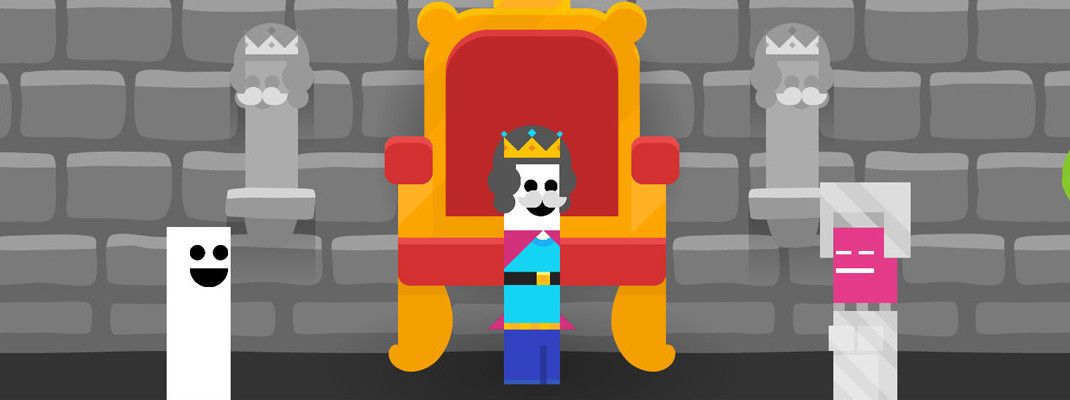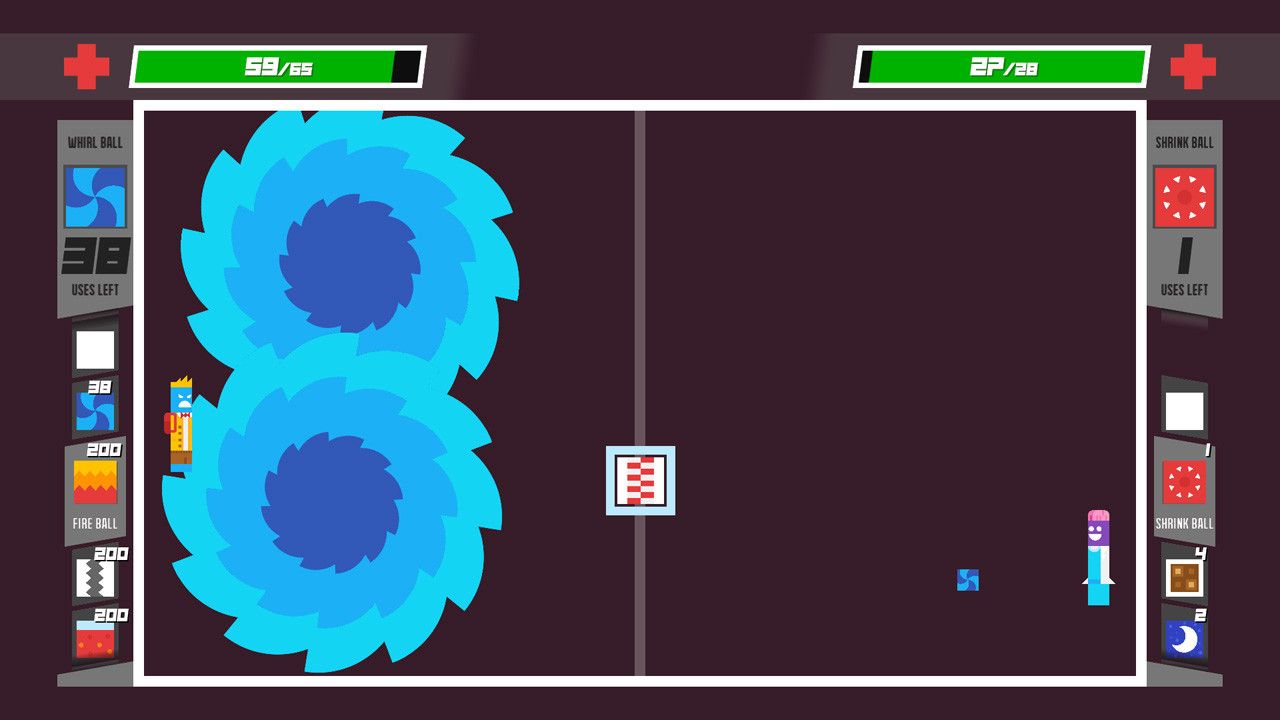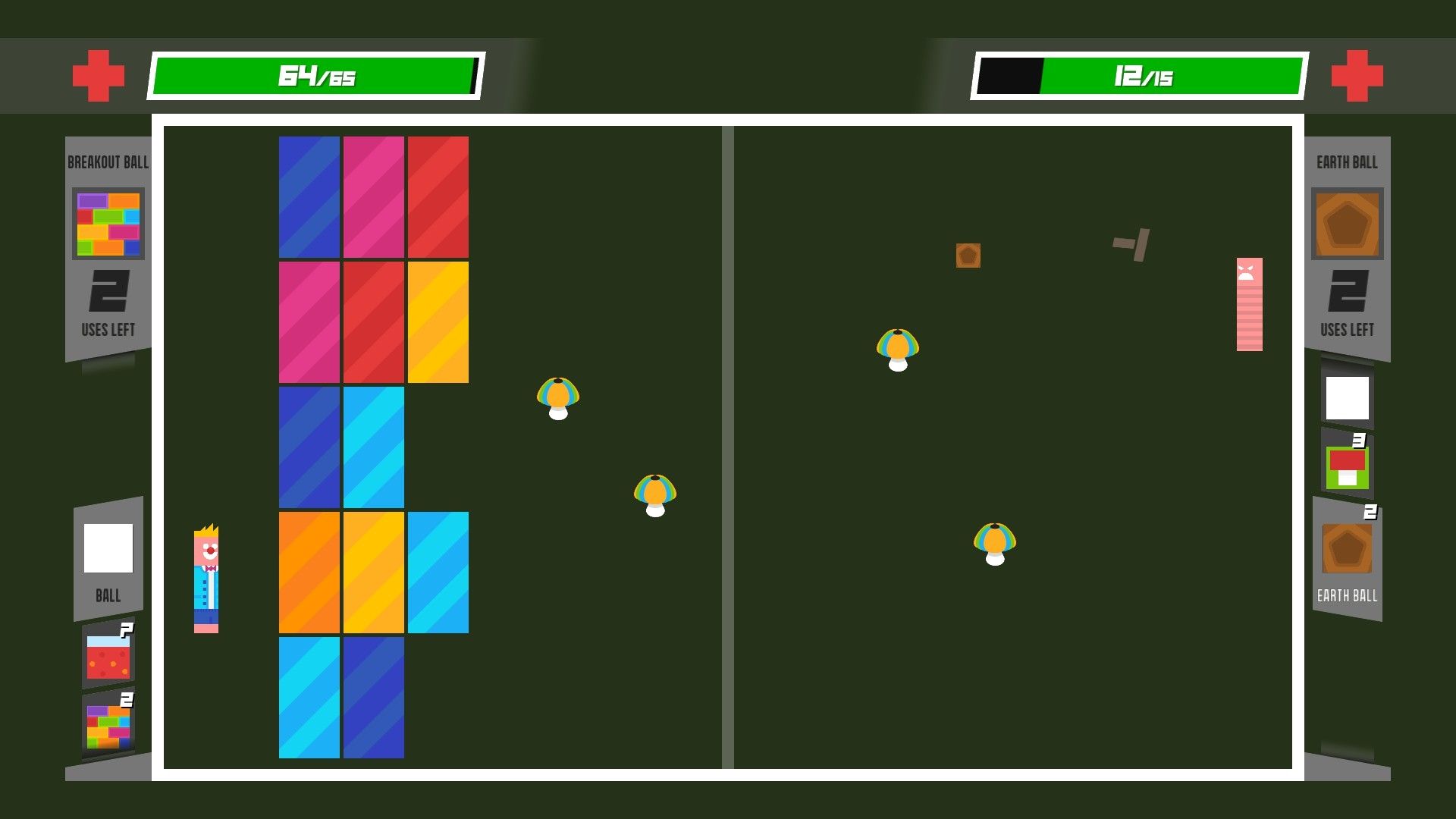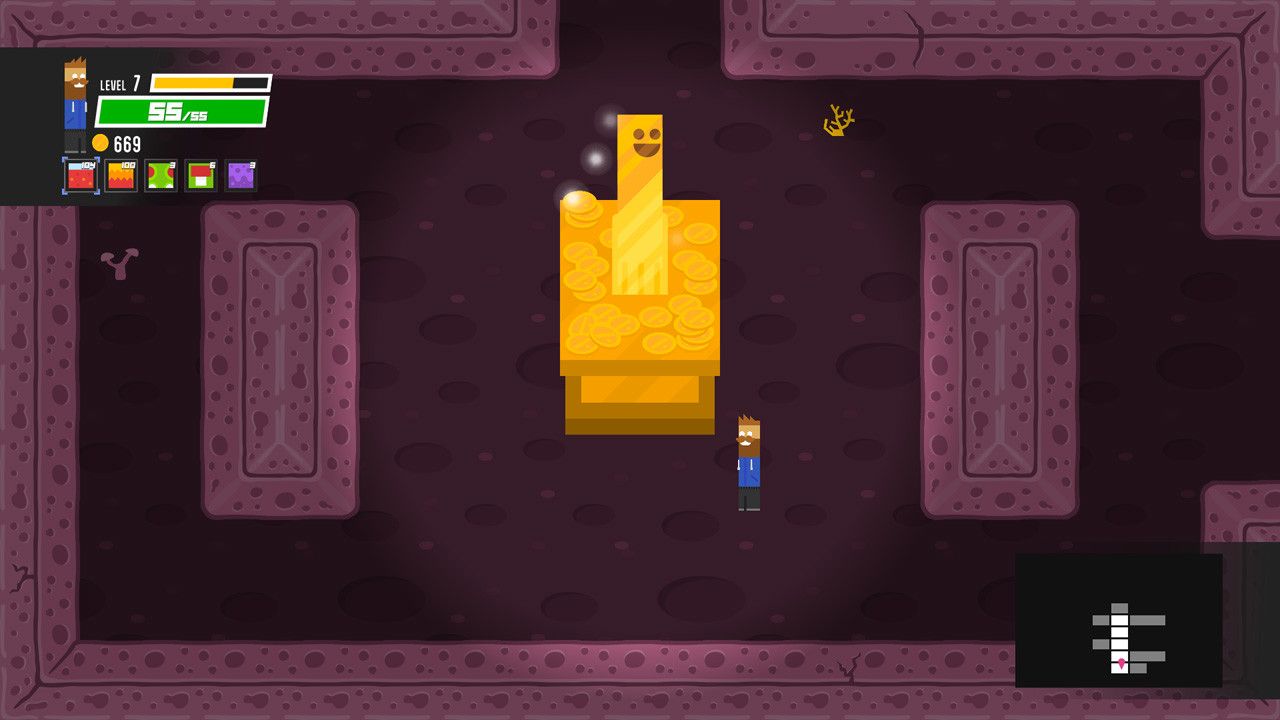The Pong series is one that has had an interesting road in gaming and gone from great heights, to just existing, to slowly fading away from the public consciousness for the better part of twenty years. It's amazing to think that there hasn't been a major Pong game since the latter-day PS1 entry and more time has passed between then and now than did between the release of the original game and that one. In its heyday, Pong was something that led to entire consoles being made around Pong clones with different color schemes for different sports. Now, with what's old being new again to degrees never before seen, is the industry ready for Pong to be resurrected?
Atari has re-imagined the Pong paddles as sentient beings, and while that's a tad odd and more than a bit disturbing on the surface, they've also injected a lot of personality into each one. Your custom character's look is something that adds a lot to the presentation of the game as a whole because you can do so much to bring life into them. If you want, you can adorn your creation in clothes that you would normally wear -- or mix and match things to your heart's content. Personally, going for something that managed to make him easier to see was my goal because the fast-paced nature of Pong can sometimes be tough to track with bad vision.
Fortunately, Pong Quest's gameplay loop makes the core Pong-esque action more visually interesting than it's been in decades. While the majority of your overall time is spent dungeon-crawling, what you do in those dungeons is more varied than it may appear on the surface. There's a risk/reward element to getting into battles thanks to the flow of combat. Each shot back and forth on the paddle drains HP, so while this works if you have more HP than your enemy, it can bite you in the butt during boss battles when they can outclass your HP four times over. Depending on battles to be a pure war of attrition is unwise, as the battle mechanics have a fair amount of depth to them.
Much like an RPG with enemies visible on the overworld, you can avoid combat in Pong Quest if you so desire. There's a bit of a stealth element needed here, however, since you're in such closed quarters -- unlike an overworld in most RPGs with this mechanic in place. You have to make sure that you're out of sight of every single potential enemy if that's how you want it. Sometimes, there will be a nice reward in it for you from an NPC if you can avoid combat too. If you're low on HP and can't find health pickup-capable balls to use during battle, then it's probably wise to avoid combat for as long as possible. Combat also builds up your XP, however, which allows you to level up and boost your stats -- so it's risk/reward. Battling more often allows you to gain levels faster, but puts you in danger of falling to a lower-grade foe. Dying in a dungeon means that you have to go through the whole dungeon again -- so the addition of the rogue-lite element adds more strategy because you need to make sure to carefully balance healing with battling and ensure to keep your HP as high as possible for a boss battle. Beating the boss allows you to move on to the next stage and gain another orb to help save the kingdom.
The core story is simple, but the character interplay is what keeps things interesting. In and out of dungeons, the writing is sharp and adds depth to the characters. You can tell who has your best interests at heart or who's trying to rip you off and some NPCs keep you sharp with various mental games. Some will have you match a pattern of lights, while others will engage you in a game of Breakout to change up the formula. Each dungeon features their own wrinkles on the brain teasers, which is good because the core formula does get a bit old -- but can changed up the more you mix up your ball selection. The default ball uses regular Pong physics, while others have curative properties for yourself or inflict damage on foes. The curveball is a great one for local enemies or AI opponents who stick to a pattern or try to stay dead-center as it requires quicker movement to avoid. The potion ball is great to stock up on for bosses as each use heals you, but you need to make sure to swap it out with a bumper button quickly to avoid using up a potion needlessly. Then you have a poison ball that zaps HP from enemies and proves to be invaluable against tougher bosses.
There's a healthy amount of variety when it comes to how you approach each battle -- but the core gameplay doesn't evolve much. Both enemies and yourself can gain some defensive tactics like barriers, but those only serve to prolong boss battles and don't wildly change up the action much. Fortunately, the game doesn't overstay its welcome with only a handful of dungeons to explore with several floors each -- and things like the Breakout mini-game and puzzle games help break up the core formula a bit.
Visually, Pong Quest does more than one might expect. There's a distinct attempt to update and modernize the look of the world and its inhabitants while still keeping within the initial Pong design. It's an interesting design choice because it limits how much you can really do, and yet within those limitations, you still wind up with a lot of personality coming across from the characters through minimal movement and design. For what the devs are going for with the retro-inspired design of the world, it's hard to imagine things looking better. While the visual design makes the retro-chic setup of the world work, the same doesn't hold true for the audio. The super-quick retro beeps for dialogue are cute, as are the different sound effects for walking on different surfaces, but the soundtrack falls short -- it's perfectly fine chiptune fare and fits the fast pace, but isn't memorable.
Closing Comments:
Pong Quest overachieves and winds up delivering a top-notch game of Pong while also paying tribute to and expanding upon dungeon-crawling RPG tropes. The randomly-generated dungeons after death help keep things fresh as do things like Breakout and puzzle mini-games. The core formula is a bit repetitive, but the game wisely doesn't drag on and moves briskly from dungeon to dungeon with new bosses and minor gameplay tweaks with new ball modifiers helping to keep the action exciting. It isn't a perfect game, but it's hard to imagine it being done much better outside of having a more memorable soundtrack.




